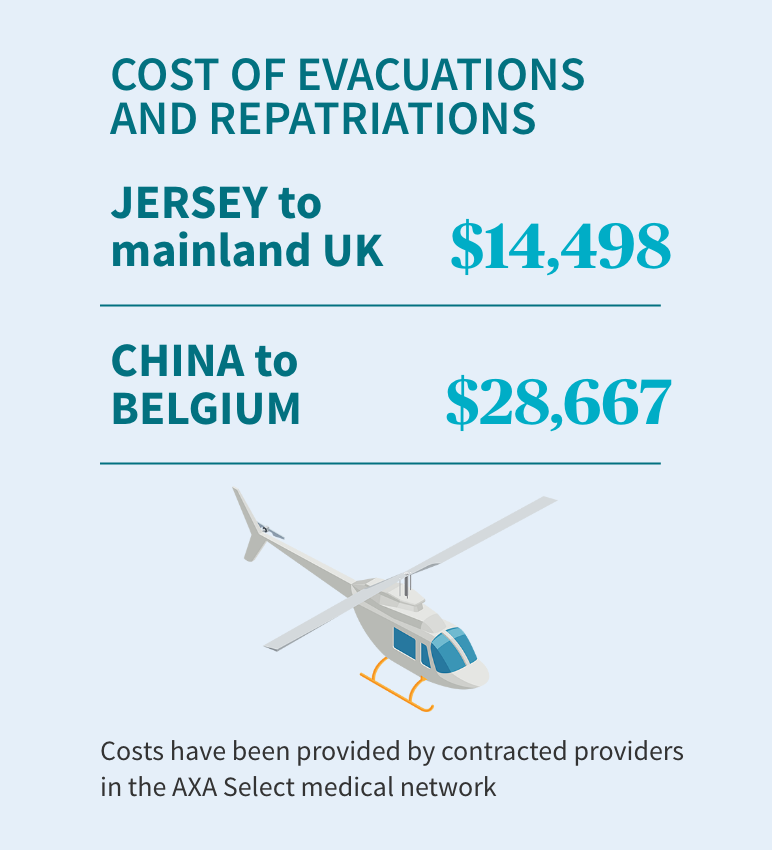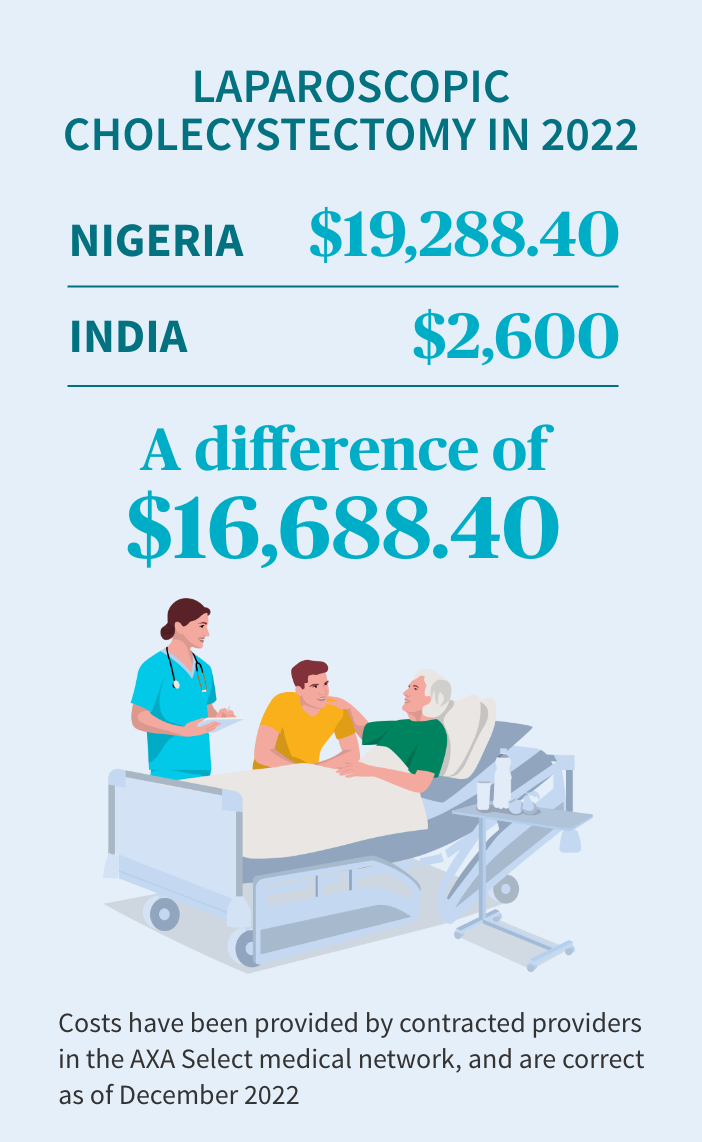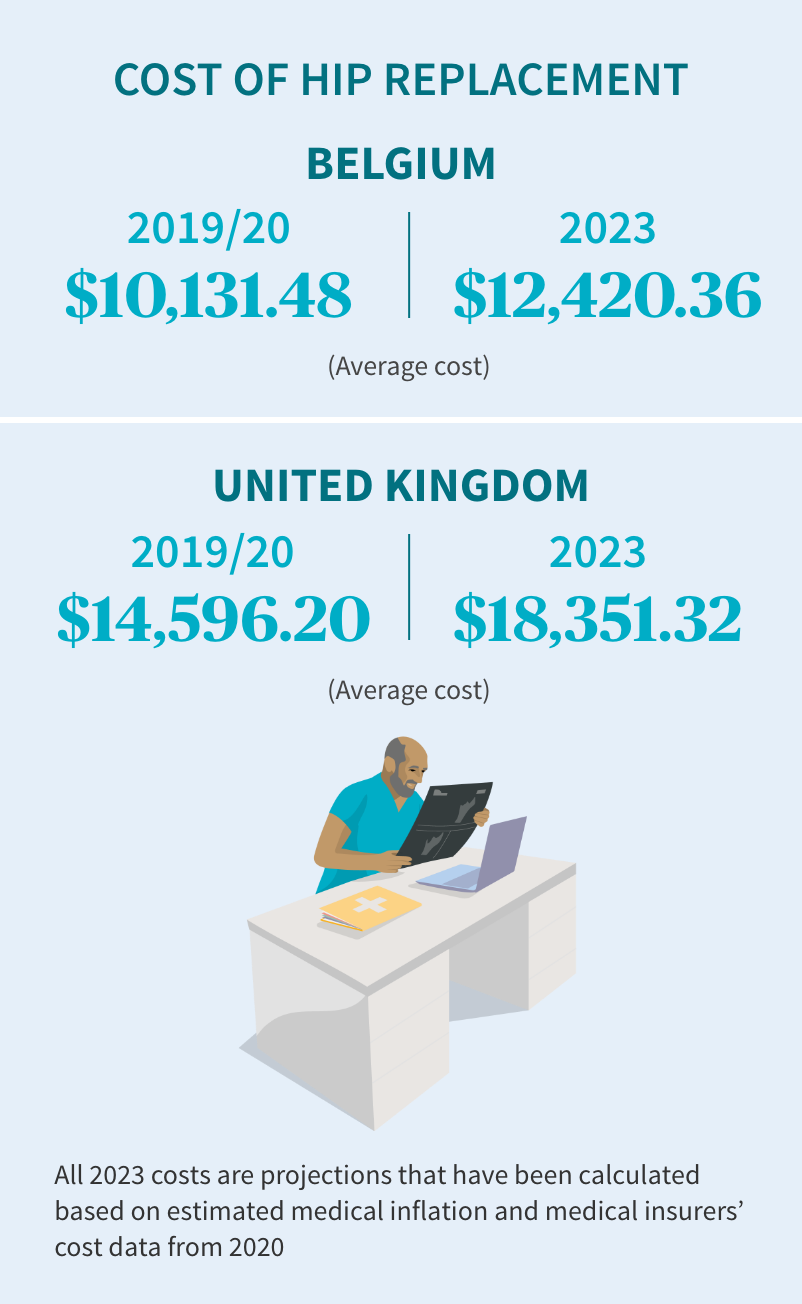2. How much does the cost of surgery differ between countries?
Whether you’re looking at a minor outpatient procedure, an overnight stay or a major operation, you’ll find that the cost of healthcare varies significantly depending on where you are. It’s impossible to guess how much you might pay for medical treatment in your new home, so you should do some research and find out how much things cost and whether there’s any kind of public healthcare system available to you as an expat.
We’ve gathered data from 2022 (through AXA Global Healthcare’s AXA Select network) to give you an idea of how much healthcare costs can differ and how extreme the differences can be.
For example, the average cost of a laparoscopic cholecystectomy – a minimally invasive yet major surgery to remove the gall bladder – was $19,288.40 in Nigeria in 2022. The same operation in India, however, was a fraction of that amount at around $2,600. Likewise, for another significant procedure like a hip replacement, the average cost in Luxembourg was $27,428, while in India it was around $5,200 – that’s a difference of $22,228!
These are extreme examples of how costs can differ. For something like an elective caesarean section, the comparison is slightly more balanced. In New Delhi, the operation would cost an average of $2,146.61, while in New York it’s $18,543.73. Widening the comparison into Europe, the same operation in Belgium would be an average of $5,251.65, while just over the border in France, it was around 10% less at just $4,726.19.
3. How much is an overnight stay in hospital?
When it comes to spending the night in hospital, whether it’s elective or unplanned, you might be surprised by the amount it could cost.
In 2022, the cost (through the AXA Select network) for a one-night stay in a European hospital was around $157 in Belgium or France and around $315 in Luxembourg. In Nigeria, meanwhile, it was as high as $372. It’s easy to see how bills could add up if you needed to spend a few nights, or even weeks, in hospital.
A night in a hospital bed is all about recovery. The last thing you need is to worry about how much it might all be costing. That’s why all our international healthcare plans include emergency cover to ensure unexpected overnight hospital stays are covered.
4. What about emergency care?
The rising costs of healthcare, and the constant advancements in medical training and technology, mean that there are some parts of the world where certain experts or facilities might not be available. This could mean that, in an emergency, you may need to be evacuated to another city or country for treatment. But the cost of doing so can be more than the cost of the treatment itself.
As with all healthcare services, the cost of an evacuation differs wildly depending on where you are. For example, one of the shorter evacuations that AXA organised for a customer in 2022 was from Jersey to mainland UK, which cost $14,498.1 In the same year, a long-haul evacuation from China to Belgium cost $28,667.1 While this is almost twice the price, the journey takes more than 10 times as long and is nearly 30 times as far.2
In an emergency, the last thing you want is to be worried about where and how you’ll get the treatment you need. Our Evacuation and Repatriation service is here to help. It’s included in all our international healthcare plans and ensures you’ll be able to get the treatment you need if it isn’t available locally. We’ve helped people travel all around the world for important treatment and emergency care.
So, whether you need to be admitted as an inpatient in an emergency, or your appointed doctors don’t think your local medical facilities are able to provide the treatment you need, we’ll cover the costs of an emergency evacuation. We’ll also get you back to where you need to be afterwards, no matter where that is.





